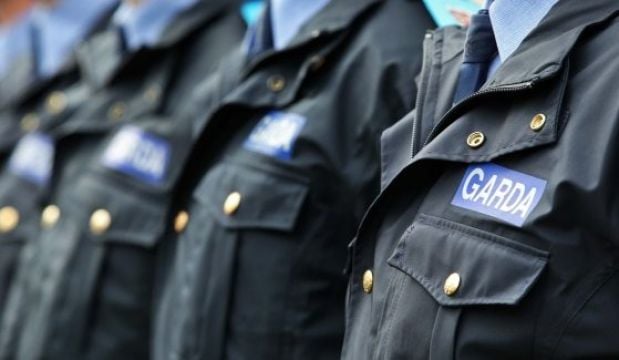The most senior garda in Dublin has admitted the number of gardaí in the capital is less than Garda management would like.
The Assistant Garda Commissioner with responsibility for policing in Dublin, Angela Willis, said the force was “down on numbers we would want to have”.
Her comments came after it was revealed earlier this week that the number of gardaí in Dublin’s north inner city is down almost 4 per cent since the start of the year.
Policing in the city centre has come under scrutiny following a violent assault on a US tourist last Wednesday on Store Street within 100 metres of the city’s largest Garda station.
Ms Willis told a meeting of Dublin City Council’s Joint Policing Committee on Monday that she was unable to discuss the specifics of the case as a youth had appeared before the courts at the weekend in relation to the incident.
However, she reassured the committee that three sergeants and 16 gardaí had been deployed in the city centre on the night of the assault as part of Operation Citizen.
Drugs seizures
The committee also heard that 3,721 arrests had been made and over 7,000 charges had been brought against individuals together with the seizure of drugs worth €5.5 million by gardaí in the two Garda divisions covering Dublin city centre in the first six months of the year under Operation Citizen.
Ms Willis stressed that other gardai who were involved in tackling street-level drug dealing, domestic abuse and cybercrime, were not always visible but were “playing a key role” in preventing and detecting crime.
However, she acknowledged that high visibility of gardaí was “critically important” for creating a feeling of safety in the city centre but claimed it would not on its own help to address underlying issues relating to anti-social behaviour.
Ms Willis also accepted that “a consistent and persistent focus” on anti-social behaviour on O’Connell Street in recent months might have had the “unintended consequence” of pushing the problem into other areas like Talbot Street.
Recruitment
Ms Willis said plans by An Garda Síochána to recruit 1,500 new members had been interrupted by the Covid-19 pandemic but that the current size of the force was roughly similar to 2018.
“We are in a much better place than in 2017,” she added.
Ms Willis noted that 370 recruits were currently in training at the Garda College in Templemore, Co Tipperary.
She said some recruits would be attested next week of which 48 would be joining Garda stations in Dublin, including 21 in the city centre area.
While there is a Government target to increase the size of the force to 15,000 gardaí, Ms Willis said it would need to grow further to take account of the country’s growing population,
“There’s no doubt, we do need additional gardaí” she admitted.
Chief Superintendent Tony O’Donnell who oversees Garda stations in the south inner city said gardaí had been mounting additional patrols and identifying youths who were causing a nuisance rather than committing crimes and had also spoken to their parents.
Chief Supt O’Donnell said there had been a significant reduction in crimes like criminal damage and burglary and public order offences in recent months, which he claimed could in part be due to “a weather element.”
Dublin’s Lord Mayor, Daithí de Róiste, said the reduction in garda numbers in the north inner city since the start of the year was “worrisome.”
“There’s an awful lot of people that don’t feel safe and it’s very much a perception issue,” said Mr de Róiste.
Several other councillors also called for increased garda visibility around the city centre to reassure the public, although most said they felt personally safe in Dublin.
Fianna Fáil councillor, Deirdre Heney, called on the council to improve street lighting in the Talbot Street area as some people found that part of the city “really dark and off-putting.”
Fine Gael councillor, Danny Byrne, called on gardaí to get tough with “gurriers” as a “softly softly” approach had not worked.
“If they can’t behave like normal members of society, they need to be removed from society,” he remarked.
Meanwhile, Independent councillor, Nial Ring, criticised the “circus-like performance,” of the Minister for Justice, Helen McEntee, over her walkabout in the Talbot Street area last week following the attack on the US tourist.
“It has angered the public around the area beyond belief,” said Mr Ring.
The committee agreed to offer an invitation to Ms McEntee to appear before its next meeting.
Sinn Féin councillor, Daithí Doolan, questioned if gardaí had a comprehensive plan for dealing with protests by far-right activists.
Mr Doolan stressed that he had no issue with the right of people to protest but expressed concern that several recent demonstrations had turned “ugly, threatening and violent.”
The Green Party TD for Dublin Central, Neasa Hourigan, also said gardaí needed to have a different approach to protests that were specifically designed to intimidate as some far-right activists were becoming emboldened by the current Garda response.
Ms Willis said gardaí operated a strategy at such protests not to do anything that would make the situation worse.
She explained that gardaí would not interfere in a protest if it increased the risk or danger to innocent bystanders.
However, the Assistant Commissioner said 13 people were being prosecuted for their roles in such protests.
The committee also heard that gardaí have overseen a total of 364 protests across Dublin so far this year







